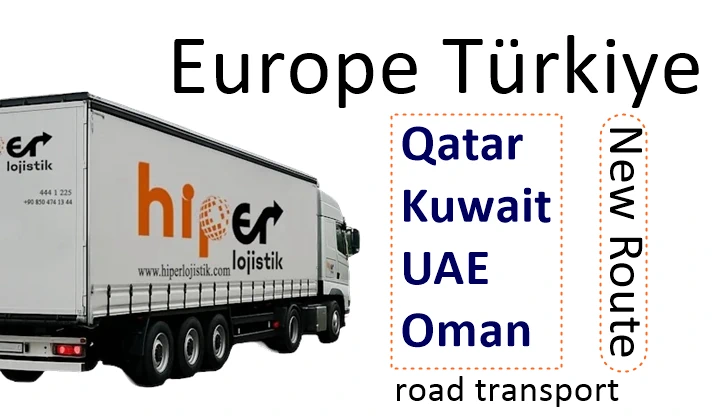
What is Transit Time? A Comprehensive Guide
Transit time refers to the total time taken for goods or shipments to travel from the point of origin to their destination. This is a crucial factor in the world of logistics, shipping, and international trade, as it influences delivery schedules, costs, and overall customer satisfaction.
Whether you’re a business shipping products to customers or someone waiting for a personal delivery, understanding transit time is essential for managing expectations. This article will dive deep into what transit time means, its significance in logistics, and the various factors affecting it. Additionally, we’ll answer frequently asked questions to ensure you fully understand this vital logistics term.
Understanding Transit Time
At its core, transit time is the duration between when a shipment leaves its origin point and when it arrives at its destination. This period includes time spent in transit via various modes of transportation (air, sea, rail, or road) and any stops or delays along the way.
Key Factors Influencing Transit Time
- Distance: Naturally, the farther the destination, the longer the transit time. Shipping goods from New York to London will take less time than shipping from New York to Sydney.
- Mode of Transportation: The type of transportation used—air freight, sea freight, road transport, or rail—has a significant impact on transit time. Air freight is the fastest but most expensive, while sea freight takes longer but is more cost-effective for large shipments.
- Customs and Border Control: For international shipments, the customs clearance process can affect transit time. If goods are held up in customs due to documentation issues or inspections, the transit time will increase.
- Shipping Route: The route taken by the shipping company can also impact transit time. Direct routes are faster than multi-stop routes, where goods may be transferred between different transportation modes or carriers.
- Carrier Performance: Different carriers have different performance standards. Some offer express services that guarantee shorter transit times, while others may provide slower, economy options.
- Weather Conditions: Extreme weather, such as storms or heavy snow, can delay transportation, particularly for air and sea freight.
- Holidays and Weekends: Some carriers may not operate on weekends or public holidays, leading to longer transit times.
Why is Transit Time Important in Logistics?
Transit time is a critical component in logistics planning for several reasons:
- Customer Expectations: In e-commerce, customers expect quick deliveries. Delays can result in dissatisfaction and loss of business.
- Cost Efficiency: Faster transit times often come with higher costs. Businesses must balance speed and cost to ensure profitability.
- Inventory Management: Companies need accurate transit times to manage inventory efficiently. Delays could lead to stock shortages or overstocking.
Types of Transit Times
There are various transit time categories, depending on the shipping needs:
- Standard Transit Time: This is the average time it takes for goods to be delivered under normal conditions, without any rush or special handling.
- Express or Expedited Transit Time: In cases where faster delivery is needed, express or expedited shipping services are available. These services come at a premium but guarantee a shorter transit time.
- Guaranteed Transit Time: Some carriers offer a guaranteed delivery date, where they promise that goods will be delivered by a specific time. If they fail, they may offer compensation or refunds.
How to Calculate Transit Time?
To calculate transit time, you need to account for several factors:
- Point of Origin: Where the goods are being shipped from.
- Destination: Where the goods are being delivered.
- Mode of Transportation: Air, sea, road, or rail.
- Carrier Schedules: Not all carriers operate 24/7. Knowing their schedules will help determine when your shipment will move.
Most logistics companies provide online tools that allow customers to calculate estimated transit times based on these factors.
Common Misconceptions About Transit Time
- Transit Time Equals Delivery Time: Many people confuse transit time with total delivery time. However, delivery time includes not only transit but also the time taken for order processing, packaging, and customs clearance.
- Faster Always Equals Better: While faster transit times are ideal in many cases, businesses must weigh the costs. Express services come at a premium, so choosing the right balance of cost and time is essential.
- Guaranteed Transit Time Always Delivers on Time: While carriers aim to honor guaranteed transit times, unexpected delays can still happen, such as extreme weather or accidents. Even guaranteed services may occasionally face setbacks.
Transit Time in Different Industries
- E-commerce: Fast transit times are essential to meet customer expectations. Many online stores now offer same-day or next-day shipping options.
- Manufacturing: In the manufacturing sector, accurate transit times are crucial for maintaining supply chains. Delays in receiving raw materials or components can halt production lines.
- Perishables: In industries like food and pharmaceuticals, precise transit times are vital. Delays could result in spoiled goods, particularly for perishable items like fresh produce or medicines.
Transit Time vs. Lead Time
Transit time and lead time are often used interchangeably, but they are not the same. While transit time refers to the time taken for goods to be transported, lead time includes the entire process from placing an order to receiving the goods. Lead time accounts for order processing, manufacturing (if applicable), and transit.
Is Transit Time the Same as Delivery Time?
No, transit time only refers to the transportation phase of delivery. Delivery time includes all phases from order placement, picking and packing, dispatch, transit, and final delivery.
Frequently Asked Questions (FAQs) on Transit Time
- What is transit time in shipping?
- Transit time is the time taken for goods to travel from their point of origin to their destination.
- What factors affect transit time?
- Factors include distance, mode of transportation, customs clearance, weather conditions, and carrier performance.
- How can I calculate transit time for my shipment?
- Use online calculators provided by logistics companies, or estimate based on distance and the type of transport being used.
- Is transit time the same as lead time?
- No, lead time includes all processes from order placement to final delivery, while transit time only covers transportation.
- Can weather impact transit time?
- Yes, extreme weather conditions such as storms or snow can delay shipments.
- What is guaranteed transit time?
- Guaranteed transit time means the carrier promises delivery by a specific date, often offering compensation for delays.
- What is the fastest mode of transport for reducing transit time?
- Air freight is the fastest but also the most expensive mode of transport.
- Does transit time include customs clearance?
- No, customs clearance is separate but can affect overall delivery time.
- How do weekends and holidays affect transit time?
- Many carriers do not operate on weekends or holidays, which can extend transit times.
- Can transit time be shortened?
- Yes, by opting for express or expedited shipping options.
- What is standard transit time?
- Standard transit time refers to the usual time taken for delivery under normal conditions, without special handling.
- What’s the difference between transit time and shipping time?
- Transit time refers to the movement of goods, while shipping time may include the entire process from dispatch to delivery.
- Does transit time affect shipping costs?
- Yes, faster transit times often result in higher shipping costs.
- Why is transit time important for e-commerce?
- Shorter transit times improve customer satisfaction by ensuring faster deliveries.
- Can transit time vary between countries?
- Yes, depending on distance, customs procedures, and the mode of transport.
- How do I track my shipment during transit?
- Most carriers offer online tracking tools where you can monitor your shipment in real-time.
- What are express transit times?
- Express transit times refer to faster shipping options that guarantee quicker delivery.
- How does carrier performance affect transit time?
- Carriers with more reliable schedules and faster services can reduce transit time.
- Does transit time differ between international and domestic shipments?
- Yes, international shipments often have longer transit times due to customs and distance.
- Is there a way to expedite transit time without high costs?
- Some carriers offer reasonably priced expedited services, but balancing cost and speed requires careful planning.






